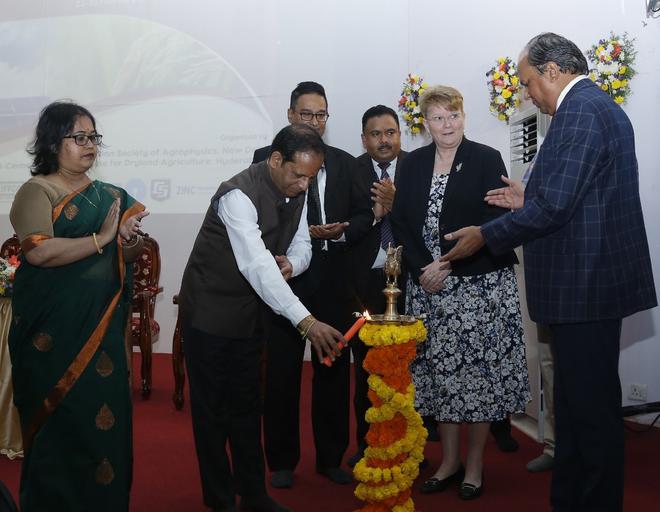hyderabad
Director General of the Indian Council of Agricultural Research (ICAR) Dr. Himanshu Pathak has stated that smart agriculture or precision farming is the future of crop production not only to make it sustainable but also to meet the growing needs including meeting food security.
Speaking at the inaugural session of the national seminar on “Smart Technologies for Sustainable Agriculture and Environment” organised by the ICAR-Central Research Institute of Dryland Agriculture (ICAR-CRIDA) in association with Indian Society of Agro-Physics (ISAP) here on Thursday, he highlighted the key role of researchers and scientists in developing various technologies spanning every aspect of food production.
He stated that precision farming comprises space application technologies like GIS, remote sensing, GPS and satellites to enhance agricultural productivity and sustainably. Dr. Pathak, who officiates as the Secretary, Department of Agricultural Research and Education, emphasised the growing role of digital agriculture. Increased funding from organisations such as ICAR and Government of India for smart technology applications like drones in agriculture.
Director General of ICRISAT Dr. Jacqueline Hughes explained the importance of dryland agriculture and use of climate-smart technologies benefiting dryland farmers and elaborated on the transition of research into practical technologies for a sustainable future. She stressed the significance of digital technologies in advancing agricultural practices.

Director of ICAR-CRIDA Dr. V.K. Singh explained how new technologies could help in providing solutions for environmental challenges. Secretary of ISAP Dr. Pragati Pramanik Maity highlighted the importance of agro-physics and the use of Geographic Information System (GIS), remote sensing, Variable Rate Technology (VRT), sensors and crop modules.
Mentioning various innovations benefiting farmers, Director of the National Academy of Agricultural Research and Management (NAARM) Dr. Ch. Srinivasa Rao said use of drones for spraying and VRT for precise nutrient management were immensely beneficial. He stressed the need for technological advancements and innovative approaches to enhance agricultural productivity while maintaining environmental sustainability.
Focus of the seminar was on core aspects of digitization of agriculture integrating cutting-edge digital technologies into the farm production system and natural resource management, including artificial intelligence, big data analytics, drones, remote sensing, sensor and communication networks.
The inaugural session was followed by a memorial lecture delivered by Vice Chancellor of Tamil Nadu Agricultural University Dr. V. Geethalakshmi. President of ISAP Dr. Y.S. Shivay and others spoke at the inaugural session. About 350 stakeholders including scientists, research workers, farmers and students participated.
(eom)






